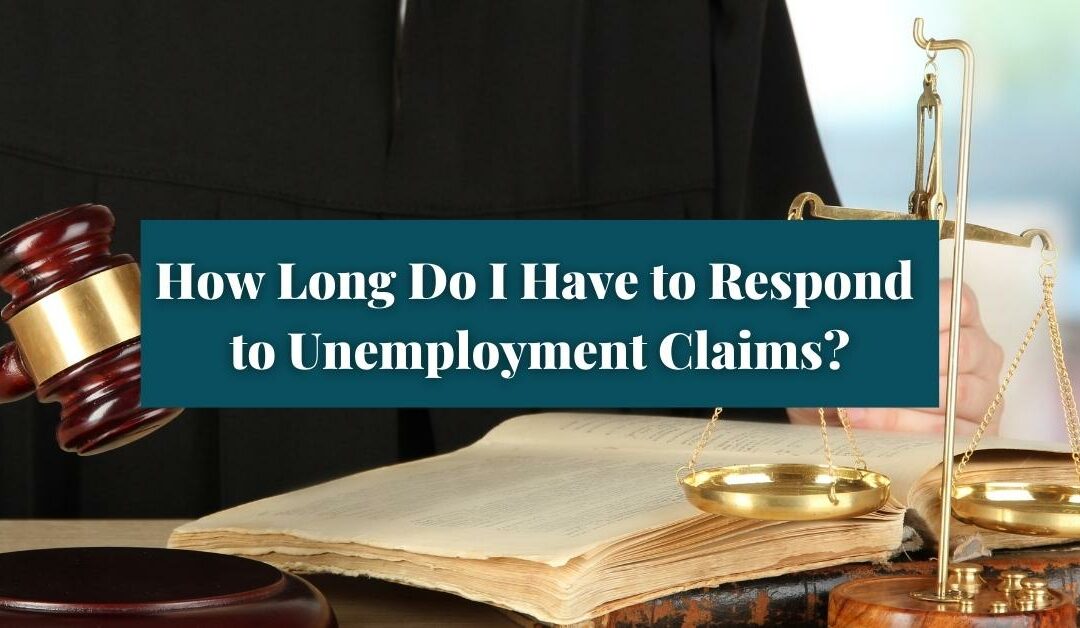If your employee files for unemployment in North Carolina, you may not know what happens next. However, you do play an active role in the process. In this blog post, we’ll look at the question, “How long does an employer have to respond to unemployment claims in North Carolina?” We’ll also see how to schedule an appeal hearing for unemployment decisions.
How Long Does an Employer Have to Respond to Unemployment
An employer has several responsibilities when it comes to unemployment claims. However, the most crucial is responding to the initial claim within the 14 days after receiving it.
As an employer, DES sends you a request for “separation information” the day after your employee files an unemployment claim. DES handles unemployment benefits and eligibility.
When you respond, DES will ask you to verify why your employee is no longer working. This can be a tricky question to answer, as many factors go into it, including whether the employee is unemployed due to no fault of their own.
The employee must meet these criteria to be eligible for unemployment:
- Unemployed due to no fault of their own
- Considered monetarily eligible
- Able, available, and actively seeking work
- Register for work with NCWorks
If you believe that your employee caused their own unemployment, it’s crucial to let the adjudicator know that you don’t think they should receive unemployment insurance benefits.
What Factors Go Into the Initial Decision?
The DES adjudicator assigned to their case will make an initial determination of whether the employee meets the eligibility criteria for unemployment benefits.
DES will ask your employee to submit the following information, which can affect their benefit amount:
- Severance – Prorated based on regular weekly salary.
- PTO (sick and vacation) – Impact determined based upon the existence of Employer’s written policy before claim filing.
- Holiday – Reported week earned regardless of when paid or received.
- Bonus (Completion/Staying/Retention) – Reported as earnings during the week received.
The North Carolina Division of Employment Security will not release unemployment benefit payments to your ex-employee until they talk with you.
However, if the adjudicator decides the employee should receive unemployment insurance benefits, North Carolina law gives you the option to make an appeal request.
You Can Appeal Unemployment Benefits
The appeals process for defending your position is straightforward. You have the right to file an appeal and request an appeals hearing. This hearing is a court proceeding that you can schedule with your local DES office.
Working with an unemployment attorney can give you the best outcome at an appeals hearing. An experienced unemployment insurance attorney can help you navigate the unemployment system, understand how to respond to requests for information, and can properly present your case at the appeals hearing.
You should take these hearings seriously and prepare for them as if they were a court case. These hearings are quasi-judicial, which means they operate similarly to a court case.
The Unemployment Insurance Benefits Hearing
At the hearing, an Appeals Referee or Hearing Officer (usually an attorney) presides as the Administrative Law Judge. This judge will ask questions about the events that led to the employee’s loss of employment. The hearing officer’s decision comes after attorneys have presented their cases.
Your attorney can thoroughly investigate the situation and call witnesses for you at the hearing. Your former employee may also hire an attorney to present evidence and call witnesses. Both attorneys may also cross-examine witnesses for the other side.
To win a case where you let an employee go, you must show that the reason for the employee’s discharge was due to their substantial fault or misconduct. If you ask an employee to resign or face getting fired, you must also show they are unemployed due to their own substantial fault or misconduct.
However, if your employee resigned from employment without force, they will need to prove that the resignation was not their fault.
If the hearing officer rules that the employee lost the job through no fault of their own, it’s likely they will receive unemployment benefits.
Your Right to Legal Counsel
You have the right to legal counsel in an appeals hearing. Your attorney can provide the clear and concise information the judge needs to hear.
In 70% of unemployment hearings, the employer carries the burden of proof and must prove the employee lost the job by their own actions. As an employer, you will likely need to establish that the loss of employment is because of substantial fault or misconduct of the employee.
What If I Don’t Participate in the Hearing?
Failure to participate in these hearings can lead to higher unemployment benefit taxes or benefit charges to your account. And, if you don’t participate in the hearing, the judge will make a decision without your side of the story.
To avoid this, you must attend the hearing or have your attorney represent you. When you handle your unemployment hearings correctly, you have a higher chance for a good outcome.
Unemployment hearings are crucial because they allow you to share your perspective and protect your business from loss. If the appeals hearing does not go your way, it is nearly impossible to get a new hearing. So, you effectively have one shot at getting your ducks in a row and proving your case.
We Can Help
Our experienced unemployment attorneys at Hopler, Wilms, and Hanna can work with you to achieve the best outcome for your unemployment insurance appeal hearing. If you have questions about how to respond to unemployment claims or the appeals hearing process, get in touch. We are here to help you protect your business.
Give us a call today to find out how we can help protect your business from false unemployment claims.

